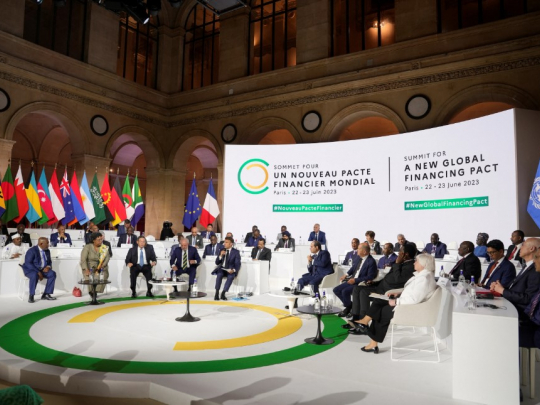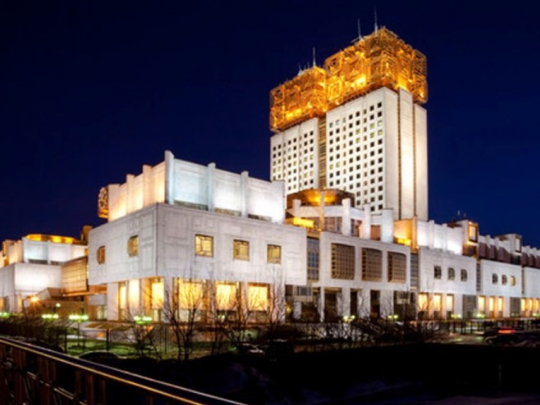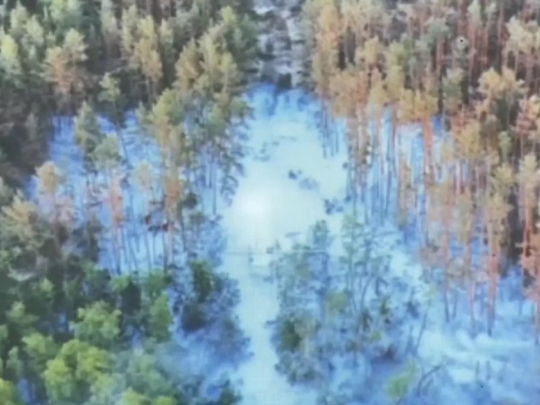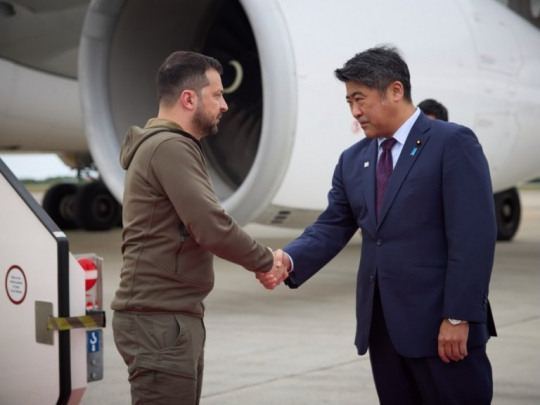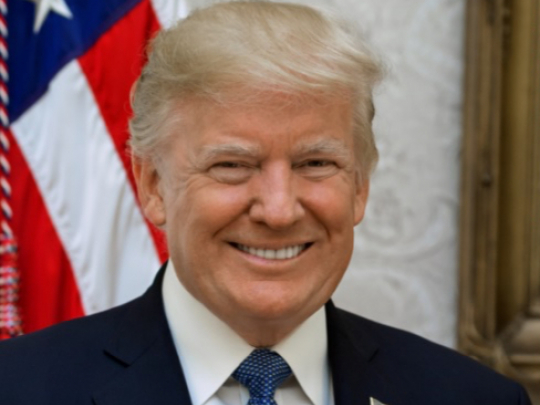China openly offers Russia an alliance against NATO
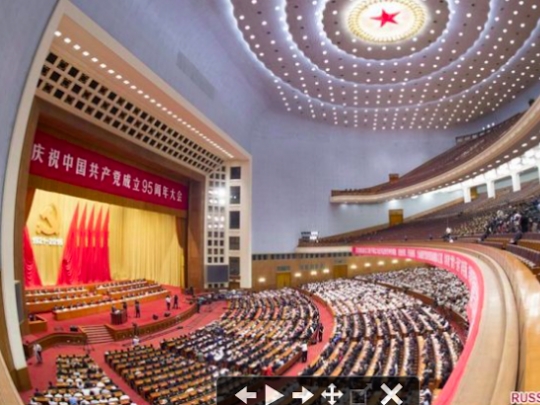
China marked an important date on July 1. It was the 95th anniversary of the founding of the Chinese Communist Party. Chairman Xi Jinping addressed the solemn meeting devoted to this event. In addition to the praises of “Long live!” (And deservedly so, since the CCP has much to be proud of) there was Chairman Xi’s speech which was short, but very important.
“The world is on the verge of radical change. We see how the European Union is gradually collapsing, as is the US economy — it is all over for the new world order. So, it will never again be as it was before, in 10 years we will have a new world order in which the key will be the union of China and Russia. ”
In fact, the chairman Xi invites the Russian leadership to take the next step. And to go from an economic and political alliance to a military-political alliance, capable not only of withstanding the challenges of the future, but also of assuming the leadership in the case of the collapse of the existing world order.
It is remarkable how delicately the Chinese party makes a serious offer to Russia. After all, shortly before the celebration of the jubilee of the CPC, a substantial Russian delegation headed by President Putin came to visit China.
There were negotiations, and framework agreements were concluded, and actual contracts. But the most important proposals were made by the chairman of China at the grand meeting of China’s ruling party, as if emphasizing that the Russian side is under no pressure and no one demands an immediate response in such an important matter.
“We are now seeing the aggressive actions on the part of the United States, regarding both Russia and China. I believe that Russia and China could create an alliance toward which NATO will be powerless and which will put an end to the imperialist desires of the West.”
This is an invitation in plain text, without any any of the ambiguity of the Asian phrase “the rumble of my laughter shakes Heaven and Earth,” which you may understand as you please.
Chairman Xi did not venture to predict how Putin will treat this proposal, but the form with which the President Xi made the proposal, it seems to me, with its specifics, leaves no gaps for answers in maybe-maybe-encouraging style.
It is surprising that only recently and the Chinese leadership and the Russian president said that that our countries do not intend to allow any military units in, nor do we intend to be friends against third countries. But, as we see, the world is changing dramatically, and the question of the timely conclusion of an alliance is quite acute, now the leadership of China takes the initiative.
Of course, China is a difficult partner, and in the past there exist a lot of black pages. But now, with all evidence, it should be recorded: China is ready to go shoulder-to-shoulder in case of any military and political complications between Russia and the West.
Time was, the USSR really lacked such a proposal. In the confrontation of the military blocs of the Cold War, China gained strength behind the USSR and occupied a waiting attitude, as if in the saying “a bear and a tiger are fighting and the cunning monkey watches from a tree and waits, until both become weak.” But it did not happen.
What happened was that in the early 1970s Henry Kissinger went on a secret mission to China, and by playing on the contradictions of the CCP with the “Soviet revisionists,” agreed on a convergence with Mao and Zhou Enlai. Relations of the USSR and the PRC at that time were marred by the Sino-Soviet border conflict over Zhenbao Island (AKA Damanskiy Island) in the vicinity of Lake Zhalanashkol and an apparent reason for immediate overcoming of the crisis had not yet emerged, and the Americans were not slow to take advantage.
As a result, China became a good appendage to Western pressure on the Soviet Union and our country has been forced to respond by creating a powerful military grouping in the Trans-Baikal region and the Far East, and defense spending (according to Valentin Falin, a prominent Soviet politician) reached 24% of GDP.
The results of this long conflict are well known. The warming of relations between the USSR and China, which began in 1985, did not help the Soviet Union because capitulants headed by Gorbachev were at the helm.
But now there seems to be a real opportunity for Russia to spread and reduce the load that weighs on her shoulders.
Though they wouldn’t say it at the high tribunals, Cold War 2.0 with Russia has been going on for a long time, and who is to say that it will be exactly repeat the first?
Obviously – it has been going on since 1999.
Item: Violation by the West of the agreement at the dissolution of the Warsaw Pact: NATO promised not to extend beyond the borders of Germany.
Item: Admission to NATO of former Soviet allies, and further – the former Soviet republics.
Item: Withdrawal from the ABM Treaty.
Item: Conflagration of the “arc of instability” from the Middle East to Afghanistan in the “soft underbelly” of Russia and China,
Item: forcing the elimination of a stable secular regimes in the Middle East, including the replacement by a terrorist caliphate.
Item: “Euromaidan” in Ukraine,
Item: a war in the Donbas and new romp in the western and south-western borders of Russia – it is just another aggravation.
The Chinese leadership does not hesitate to admit that China by itself alone can not confront the challenges of the future, especially of a military nature. And, despite the significant economic progress with technological breakthroughs in some areas, many Chinese state structures are not fully modernized:
“Creation of an army, that corresponds to the international status of our country is a strategic task. We must combine economic development with defense development, modernize the army, so that it is current and standardized … We need to comprehensively promote reform in the military sphere to create an army that would be disciplined and would win. ”
I would venture to suggest that the PLA’s modernization that the Chinese leader spoke of may stem from the thorough impression made by the joint Russian-Chinese exercises, plus the results of the competition in the “tank biathlon,” and, especially, seeing the progress of Russian VKS in Syria.
All this, by the way, implies a possible price for an alliance with China – the modernization of its armed forces to Russian standards. There are other possible pitfalls. But we’re not talking about this now. It is important that Russia does not hurry with an immediate response and an essential conclusion of a desireable Chinese alliance.
Agreement on military and political cooperation will necessarily be preceded by talks in which the parties will take into account each other’s wishes, so that nothing is left undealt with between the allies. It is equally important that Russia and China have much to offer each other, and for Russia there is a good opportunity, not only to shift some of the load onto the shoulders of an ally, but also to spur the process of re-industrialization.
Now we will wait for the response pathway of Russia and the reaction of the “world community.”
- Source : Alexander Rostovzef




